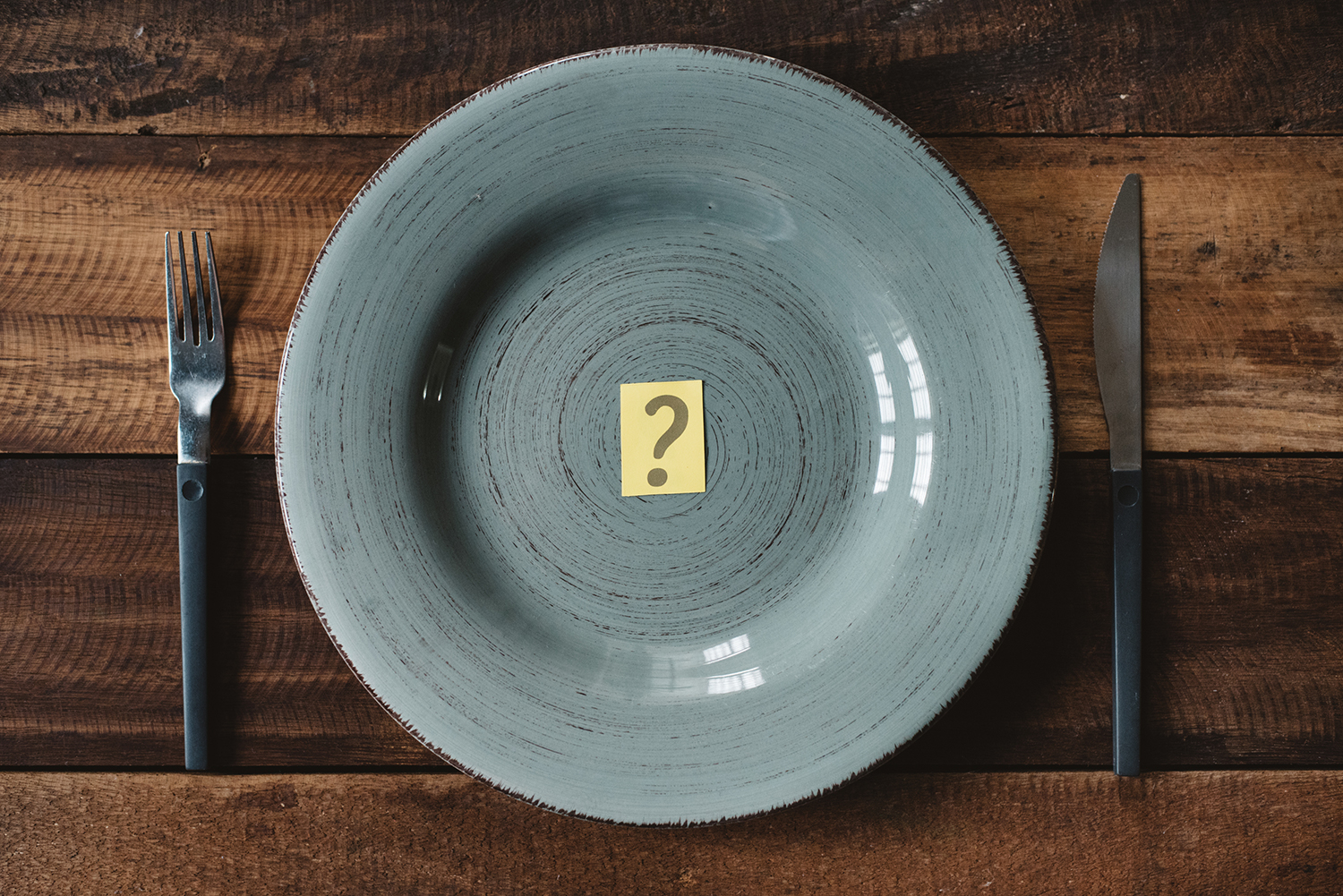The Blood Type Diet
Outdated or Still Current?

Should You Tailor Your Diet to Your Blood Type?
It’s been 20 years since the blood type diet made its appearance and it’s still making the rounds today. It’s a logical concept – every blood type has a different chemistry and reacts differently with the foods we eat. Over the years, as people have eaten this diet, they’ve lost weight and had more energy. But is it because they’re following a blood type diet, or is there something else that gives the concept its limited success?
Back in 1996 I wrote a book called Your Body Knows Best and extensively explored the science behind this diet, along with the problems and pitfalls of following it. I also discovered the secrets behind why it works so well for the people who experience success with it. The bottom line is there are components of the blood type diet you can incorporate to enhance your health and weight loss success, and I’m sharing those with you today.
How Your Ancestry Affects Your Biology
One thing I’ve grown certain of in more than four decades of nutrition practice is that there isn’t one diet that fits everyone. In our current culture and economy, we have easy access to a wide variety of foods from all over the world. But, even though we can all eat the same foods, we don’t all thrive on the same foods. A lion can eat a vegetarian diet, but won’t thrive on it the same way a deer does.
People have the same variations and our ancestry is written not only into our genetics but into our blood types as well. Knowing where your own family ancestors are from can provide clues about how your own family members (and their diets) naturally adapted and biochemically evolved to the region they lived in and the foods grown and harvested there. And those genetic and ethnic conditions persist – in your blood and physiology – even when you are no longer in that same geographic location. This means you can live anywhere in the world but your nutritional compass is still set to where you – and your ancestors – originated from.
When you stray from the diet that is indigenous to your ancestry, you can miss out on specific and necessary nutrients, which can cause a whole host of physical and emotional difficulties. The problem is that most of us in North America are the product of generations of mixed ancestry, so it can be hard to know where to start. That’s where your blood type can come in and help refine your food choices.
How Does Your Blood Type Relate to Your Diet?
Your own unique heritage is intimately tied to your blood type. Although most of us are somewhat familiar with blood typing, it may be surprising to know these types connect us with our distant past. The different blood types – A, B, O, and AB – appeared at different times in mankind’s history and are related to the environment and movement of generations of people through the continents.
Blood types have been studied extensively throughout the world, with the most notable research being in Japan. The world’s foremost expert, Toshitaka Nomi, has published over 25 books on the subject, going into every detail from specific personality traits to which foods work best with your unique chemistry. He has even proposed that there are national personality traits based on the balance of blood types present in a population.
Nomi found that, in general, blood type O individuals are goal-oriented and enthusiastic, A individuals are more detail-oriented and fastidious, B’s tend to be more creative and unconventional, and AB’s have great spiritual sensitivity.
In North America, there are two prominent naturopathic physicians, James D’Adamo and son Peter D’Adamo, who have extensively studied blood type groups and their relationship to biochemistry, diet, and disease. Their interest was sparked by the theory that because blood carries nutrients throughout the body, different blood types interact differently with foods and their nutrients. Over the millions of years humans gradually moved across the planet in search of food, they adapted over time to whatever local conditions and foods they found, and as a result, the blood types formed.
How to Eat Right for You Specific Blood Type
Here’s a brief summary of what the D’Adamos discovered with each blood type:
Suggested Diet for Blood Type A
Type A individuals should follow a more vegetarian diet based on fresh organic vegetables, fruits, legumes, and whole grains. They observed that people with type A blood have a more sensitive immune system.
Suggested Diet for Blood Type B
Type B individuals need more animal protein in their diet, including eggs, dairy, and most meats, but chicken isn’t ideal. They should avoid corn, wheat, buckwheat, lentils, tomatoes, peanuts, and sesame seeds.
Suggested Diet for Blood Type 0
The oldest blood type on the planet, Type O individuals have a greater need for animal protein and fat which calls for a high-protein diet focused on meats, fish, and vegetables, while eschewing grains, beans, and dairy. Type Os were found to be more prone to Celiac disease, gluten intolerance, and allergies.
Suggested Diet for Blood Type AB
The newest and the most rare of the blood types tend to have low stomach acid, leading to trouble with digestion. They do well with a near vegetarian diet with a focus on green vegetables that includes dairy and seafood. They need to stay away from caffeine, alcohol, and cured meats.
The Real Secrets to Blood Type Diet Success
Take a look at all of the diets recommended for each of the blood types. Do you see what they all have in common? For one thing, they are each very specific and limited in the scope of foods you can eat. But, perhaps the most important, is what they don’t allow:
- No processed foods or simple carbs. None of these blood type diets allow processed foods or simple carbs, both of which are inflammatory, disease promoting, and cause you to pack on the pounds. Just eliminating these foods alone would explain the moderate success of this plan in helping you to lose weight and have more energy.
- No highly reactive foods. Each blood type diet has some highly reactive foods it doesn’t allow. This is because of the lectin content of these foods. Lectins are protein antigens that bind to the surface of blood cells and cause intestinal damage, digestion and absorption problems, nutrient deficiencies, allergies, and immune exhaustion, among other serious reactions. More than 65 lectins are known to bind specifically to the ABO blood types. Eliminating these toxic allergens goes a long way toward restoring health in anyone.
The Limitations of Blood Type Dieting
Eating for your blood type is such a fascinating and appealing concept that back in the day I really wanted it to work. But in practice, I found that it just is not the overriding factor in health and wellness. Here are three major reasons why:
- Widespread food sensitivities exist regardless of blood type. These days, I find people are sensitive to the exact same foods – regardless of blood type. It may be that the lectins in these foods are responsible. Or, there could be mitigating factors, like the chemicals they are grown with or the way they are processed. It may even be that environmental toxins (think glyphosate) are increasing our sensitivities beyond the D’Adamos’ original research was able to account for.
- Ancestry and metabolic type trump blood type. I find, in general, that ancestry and metabolic type (whether you are a fast or slow metabolizer) are two factors that trump blood type. That being said, blood type is useful to help hone in on which foods to emphasize for your metabolic type and ancestral background.
- Maintaining such a restrictive diet isn’t without its challenges. It is extremely challenging to maintain such a restrictive diet plan for an extended period of time. Limiting your food choices presents problems not only in getting enough of all of the essential nutrients, but also in social situations (like family gatherings) where food takes center stage. Over time, feelings of deprivation can set in which can trigger overeating and/or bingeing.
All in all, the body of knowledge we’ve amassed through research about diet and nutrition is truly impressive and is ever-evolving. From blood type to gene mutations like MTHFR, we have gained a wealth of knowledge about how our bodies process and assimilate nutrients. As we encounter each new piece of the puzzle, rather than viewing it as the lynch-pin of a totally new dietary strategy, we should simply incorporate it into what we already know works for each of our unique and individual needs. If you are already following my Fat Flush or Radical Metabolism programs, you can basically incorporate a focus on your own unique ancestral foods while keeping in mind your specific blood type recommendations.
Ann Louise Gittleman, Ph.D., C.N.S.
Ann Louise Gittleman, PhD, is a New York Times award-winning author of 30 books on detox, health, and healing, including the international bestselling Fat Flush Plan and Zapped! Visit her blog and join her online Fat Flush Community.
Don't Miss a Thing!
Get the latest articles, recipes, and more, when you sign up for the tasteforlife.com newsletter.

